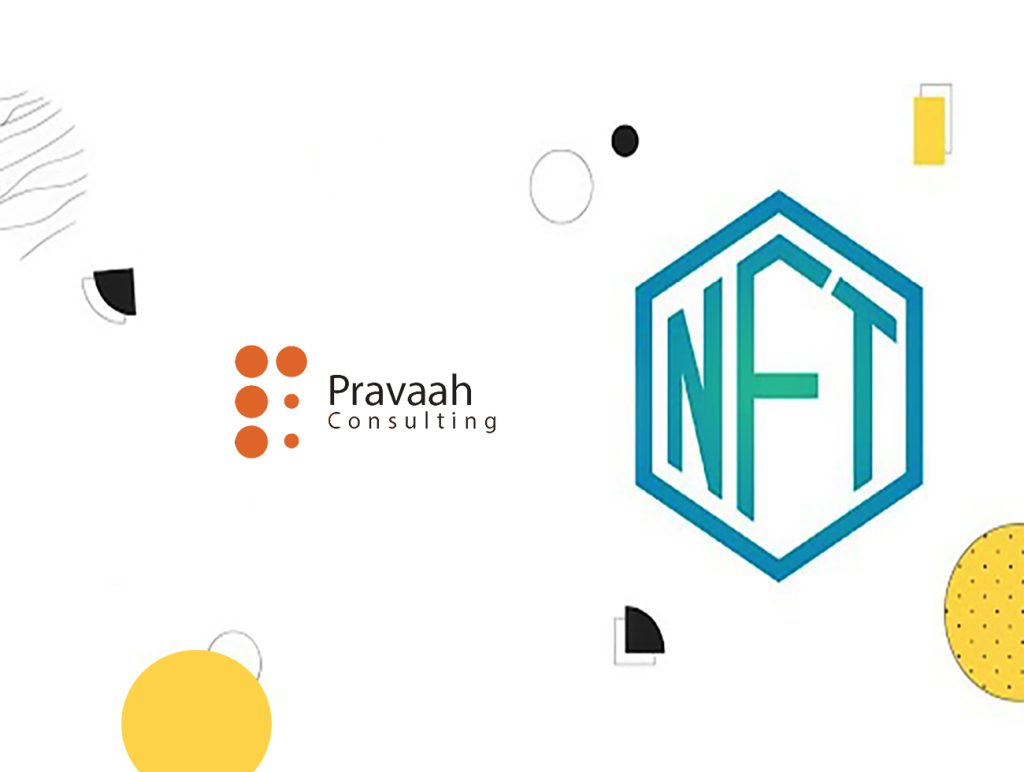NFT is an abbreviation for non-fungible tokens. Fungible is exchangeable, a non-fungible token, on the contrary, is a one-of-a-kind digital asset that does not substitute for another NFT. As a result, each NFT is a ‘one-of-a-kind’ piece.
A one-of-a-kind collectible asset, such as a work of art, for which you would have a certificate of ownership attesting to its authenticity. The meaning of NFT is further cleared with its blockchain technology, which eliminates the requirement for ownership certificates. Certain NFTs employ blockchain technology to establish a digital ownership certificate for a unique physical object. NFT’s can also be transferred from one owner to another using blockchain technology, which provides a digital trail from the seller to the buyer that validates the transaction. Investors can browse an inventory of holdings before deciding which one to purchase.
NFT’s have been in existence since 2014, but NFTs became famous as an investment only in 2021. As cryptocurrency investing gained popularity, so did the idea of selling specific digital assets to investors for purchase online.
What is NFT and how is it used?
Digital assets need cryptocurrency. Rarity, OpenSea, Binance, Tools, and NFTcatcher.io. etc. are few online markets that trade in NFT’s. Setting up an account in the marketplace linked to the cryptocurrency wallet containing the coins is essential. Investors can browse an inventory of holdings before deciding which one to purchase.
NFT’s have provided a new avenue for artists, businesses, and celebrities to monetize their assets. Artists may establish a library of digital goods to sell to a new generation of investors and collectors. Celebrities are developing assets that leverage their famous brand identity. Some NFTs are worth millions, if not billions, of dollars.
CryptoPunks is a collection of non-fungible tokens on the Ethereum network. The Larva Labs studio, a two-person company, consisting of Canadian software engineers Matt Hall and John Watkinson, debuted the project in June 2017.
Are Cryptocurrency & NFT’s any different?
NFT’s and cryptocurrencies are not the same assets. The transaction is carried out through an NFT that uses cryptocurrency & it cannot trade at equivalency. Each cryptographic asset gets a unique identification code and information that differentiates one NFT from another. For example, we may trade one bitcoin for another since they are equal – but NFT crypto does not sell similarly.
How To Invest In NFT’s
Investing in NFT’s necessitates careful consideration from the investor or collector. Identify NFT’s that you believe will appreciate. Learn more about NFT’s from the markets where they hold sales and auctions. Participate in NFT Discord and Telegram discussions to discover other people’s opinions about existing NFT’s and forthcoming releases.
You cannot purchase an NFT unless you have an account on one of the exchanges. For buying an NFT, the wallet must contain enough of the relevant cryptocurrency. It is essential to buy the cryptocurrency required for the transaction through a brokerage firm and then link the cryptocurrency wallet that keeps it to the marketplace you decide to make the NFT purchase. New products with a lot of excitement may sell out rapidly.
Human One, created by Mike “Beeple” Winklemann, is a hybrid of a physical investment with a digital token. He refers to it as a kinetic video sculpture with four screens on a polished aluminum metal set in a mahogany wood frame. This NFT sold for $28.9 million in November 2021.
NFTs are becoming increasingly popular in digital trading and art collecting. Ascertain that you have the appropriate cryptocurrency to purchase the NFT you desire. Once you have obtained the NFT, you may keep it and utilize it in digital formats, selling it to another trader looking for a one-of-a-kind asset. Celebrities like Jimmy Falon, Paris Hilton, have been in the news as well. Now let’s look at some cons of NFT.
NFT CONS
NFTs as an investment is a highly safe way to make money; the return depends on the asset’s lifetime and luck. Some NFT investors have had success. However, it is an intelligent investment in general; there are some probable consequences.
Fear of scamming: In general, e-commerce has always been a bit of a gambler’s game. This is a reason why trustworthy vendors like Amazon have risen to superhuman levels of omnipotence—how can we know that the offer is authentic if we aren’t taking the thing up off the shelf ourselves?
Virtual dealings become akin to the Wild West. Following are the possibilities:
- Counterfeit markets
- Fraudulent vendors (often impersonating real artists and selling copies of their work at a fraction of what the original is going for)
- Unverified vendors
All the issues above will concern purchasers, but what about investors? If you’re a philanthropist investor, you should be highly vigilant of bogus businesses and untrustworthy “artists” looking to make a fast buck.
NFTs are harmful to the environment: The machines that create this blockchain data run indefinitely and at a high capacity posing a threat to the environment.
NFTs are not art and do not protect artists: Students of the old school of contemporary art sometimes argue that our generation’s Van Goghs and Dals never saw the light of day “because youth nowadays are indolent.” It is somewhat correct, but money is the root of the problem.
You never truly “own” something. A non-financial transaction: Four wooden blocks, one labeled “The ownership records themselves, are the digital equivalent of Beanie Babies: charming little nothing’s with no worth other than what someone else would pay for them.”
Conclusion
My wealth builds off of your wealth; the ones who eventually win that wealth are the ones who end up surviving and authoring the future, for better or for worse. In economics, there is no telling people what they should do. They’re going to take the path of the least resistance, and, with every dollar earned and spent, we lay another tile down before us. Corporations and brands have started investing in NFT’s, Visa bought crypto punk for over a million dollars is just an example.


